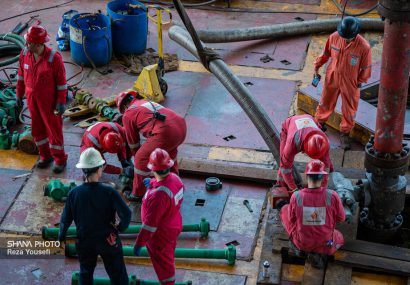Time to Assemble Iran’s Oil Negotiation Teams
TEHRAN (Iran News) Amirmaeini pointed out in an interview with ILNA that over the past one to two decades, Iran’s oil and gas industry has suffered from a severe lack of meaningful investment. This stagnation has reached a point where even domestic energy needs are difficult to meet — let alone expanding exports. He stated that the core challenge facing both the economy and the energy sector is investment, and any progress in the diplomatic talks could pave the way for foreign investors to return.
He added that beyond financing, Iran also needs modern project management and access to new technologies. Success at the negotiation table, he said, would allow Iran to mobilize all necessary production factors, helping stabilize and increase production in the oil, gas, and refining sectors.
Amirmaeini underscored that while various political groups have made claims about advancing the energy sector, the reality is that sanctions have been a significant obstacle. “Only the lifting of sanctions can resolve these deep-rooted problems,” he said.
Looking ahead, he explained that should sanctions be lifted, Iran must focus on identifying attractive projects for foreign investors and offering them under suitable contractual frameworks. But just having model contracts is not enough. What’s crucial, he said, is having agile and skilled negotiation teams to accelerate investment opportunities in the oil sector.
“If the Oman negotiations bear fruit, we must be ready to act quickly. Legal frameworks are especially critical, and we must be prepared to finalize agreements and commence projects in the shortest time possible,” Amirmaeini noted.
Regarding exports, he cautioned against expecting an immediate return to traditional or new markets. “We must re-enter the global market gradually. Many countries are keen to diversify their energy suppliers and reduce dependence on limited sources, and Iran can certainly fill that gap. However, due to high domestic consumption—particularly of gasoline, diesel, gas, and electricity—initial investments should prioritize domestic supply.”
He also highlighted Iran’s potential gas export opportunities, pointing to Pakistan as a promising market, contingent on sanctions being lifted. “We could revive the long-stalled pipeline project. Additionally, we can broaden talks with Turkey and Iraq, invest in LNG infrastructure, and target more distant global markets. The LNG market is growing rapidly, and we need to focus our attention there,” he said.
Currently, the bulk of Iran’s oil exports go to China. Still, Amirmaeini expressed confidence that new markets can be found, especially as countries seek to diversify their energy sources.
He acknowledged that some oil producers may not welcome Iran’s return to the market but said the overall market could absorb Iran’s share. “Even with OPEC and OPEC+ managing oversupply to maintain price stability, all players stand to benefit in the long run,” he stated.
On potential collaboration with American oil companies, Amirmaeini noted that while Iran hasn’t worked with U.S. firms since the 1979 revolution, American companies played a significant role in developing Iran’s oil sector beforehand. “If the political climate allows it, U.S. firms could compete with their European counterparts to invest in Iran. They hold advanced technology and expertise, especially in shale oil, and though our fields don’t require cutting-edge tech, any company that brings strong technical, financial, and legal capabilities will have an edge.”
- source : IRAN NEWS ECONOMIC DESK






























